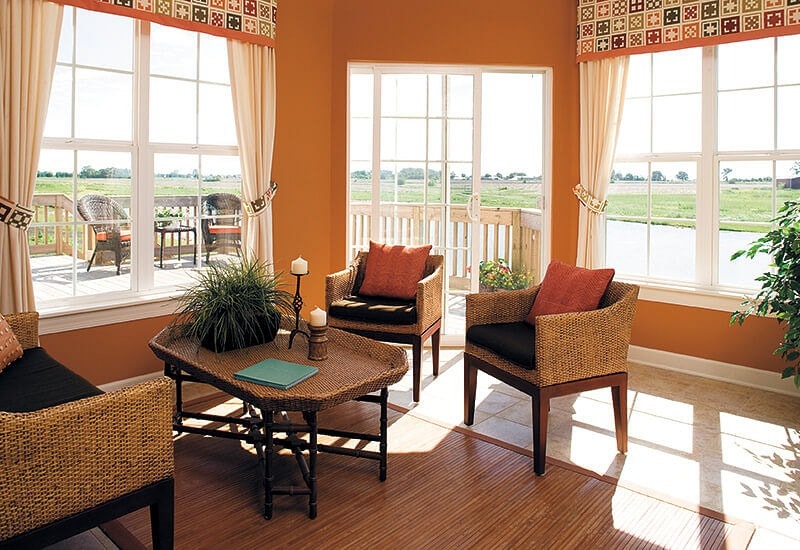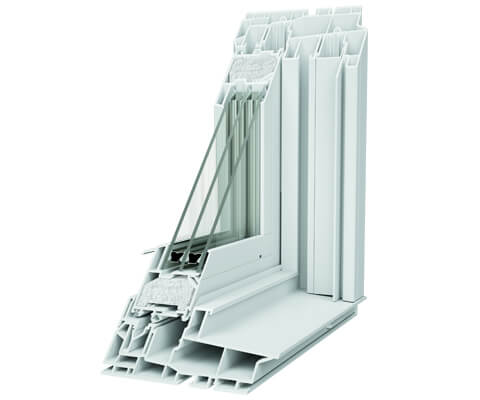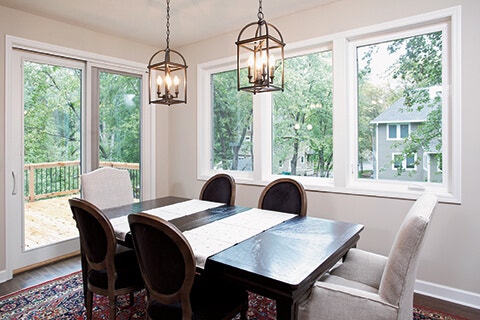Know the Difference: What Makes Vinyl Unique?
Posted
on June 22, 2017

When it comes to choosing a material for your windows, there are four main contenders: fiberglass, wood, aluminum, and vinyl. Making the right call ultimately comes down to your own personal preferences as well as the specific needs of your home. What is the most important factor to you: cost, energy efficiency, appearance, or all of the above?
Take some time to compare window materials, and understand the specific advantages offered by one of the most popular window materials, vinyl. See how it stacks up against some other classic material options, and know whether or not it may be the right choice for you. Regardless of the material you choose, there are several options to choose from.
Introducing an Old Favorite: Vinyl
Vinyl is made from a plastic material called polyvinyl chloride (PVC), and it provides a significant amount of insulation. Vinyl offers a combination of quality and affordability that appeals to a wide variety of homeowners. Depending on the overall look and style of your house, vinyl can serve as a complement to modern or classic interiors, without putting a strain on your budget. Depending on what type of vinyl you choose, you can opt to invest more or save. As an added bonus, vinyl is one of the easiest materials to care for, doesn't require additional painting, staining, or refinishing to stay looking great for years.

Vinyl windows have many advantages including a low maintenance, neutral design that can complement most homes, and quality options at an affordable price. However, vinyl windows are not right for every home. Vinyl is often overlooked as a quality window material because of a misconception that it is less durable than other options. Pella vinyl windows are designed with multi-chambered frames and metal-reinforcement where needed for added durability, helping to eliminate warping, sagging and bowing vinyl.
Compare vinyl to other window materials
Exactly how well does vinyl stand up against some of the other common options? We compare vinyl against other materials.
Vinyl vs fiberglass windows
Both materials are lightweight, low maintenance, and offer exceptional durability. Pella fiberglass windows offer the quality look of painted wood whereas vinyl windows typically offer a smooth finish. Fiberglass is designed to withstand extreme temperatures so it may be a better choice depending on your climate.
Vinyl vs wood windows
It’s hard to match the natural beauty of stained wood, and vinyl can’t mimic its rich feel. Wood offers the most flexibility with design options - inside and out - and can complement a home’s trim, floors, or cabinetry. Wood is a natural insulator and sound barrier. However, vinyl offers a neutral appeal that you can pair with most any interior at a lower price point than wood. Vinyl is also lower maintenance than wood, which will require maintaining the interior paint or stain over time. Both materials are durable and long lasting, so your choice may come down to design options, price, and maintenance.
Vinyl vs aluminum windows
Vinyl windows and aluminum windows offer two distinct styles, and depending on the aesthetic of your home, either can be a good, affordable option. Aluminum windows are more commonly found in commercial applications, and often do not meet ENERGY STAR requirements for residential single family homes in many states (visit ENERGYSTAR.gov to determine your climate zone and determine what the required window performance is for your area). Vinyl windows typically offer a greater level of energy efficiency, and may provide a more appealing design option for the aesthetic you are trying to achieve.

Vinyl is great at standing up against harsh weather, while staying easy to clean and maintain. In addition, it is a good choice for bathrooms and kitchens because of its water resistance.
Not all vinyl windows are created equally. When evaluating vinyl windows for purchase, make sure not to look at price alone. Consider the following factors to choose a quality vinyl window:
- Backed by a quality manufacturer
- Quality construction including internal air chambers and strong frames
- ENERGY STAR® certification - look for the NFRC label and ENERGY STAR® certification
To get more information about vinyl how it compares to other materials, get in touch with Pella today.
Schedule a free consultation to find windows and doors for your home.
